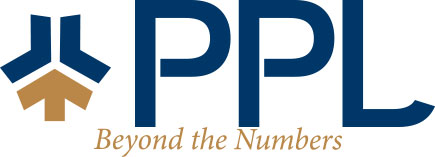Owing a small business can be overwhelming at times. Bookkeeping for small business owners can be even more overwhelming. Below are 10 bookkeeping tips to help you manage your bookkeeping.
Tip # 1. Keep your business and personal finances separate.
- Comingling business and personal finances is a common mistake made by small business owners.
- Not only can comingling funds erode your limited liability, but it may also distort the financial health of your business.
Tip # 2. Automate whatever you can.
Entering data into spreadsheets and reconciling numbers manually is so old school. Use cloud-based bookkeeping software and do your business banking online. That way, you can sync your bookkeeping software with your business bank account, so you always have accurate, up-to-the-minute records. Plus, with the cloud, your critical financial data is backed up safely off-site.
Tip # 3. Consider implementing a retirement plan.
Most employer contributions to retirement plans (401(k), SEP, SIMPLE) are tax deductible. In most plans, business owners can make tax deferred contributions to their own retirement accounts.
Tip 4#. Perform regular financial checkups.
If you put off bookkeeping too long, you end up with bounced checks, overdue invoices, or figures that don’t add up.
- Set aside time weekly to organize and record your income and expenses.
- Review your financial statements at least monthly for trends and errors.
- Reconcile your bank and credit card accounts monthly.
- Have your CPA review your financials at least quarterly for insight and planning.
Tip 5#. Keep a close eye on accounts receivable.
When customers don’t pay on time, your business’s cash flow can dry up fast. Pay attention to when your receivables are due and contact late-paying customers right away to nudge them along. Even if a customer is having financial problems, you may be able to set up a payment plan to get at least some of what you’re owed.
Tip #6. Stay on top of tax deadlines.
To avoid getting caught short, plan ahead and set aside money for any anticipated tax bills and pay them on time so you don’t face fines. The IRS website’s tax calendar for businesses can sync with your own cloud-based calendar so you never miss a deadline; it can even send you reminders a week or two before a payment is due.
Tip #7. Classify employees and 1099 contractors correctly.
- 1099 contractors are generally those who maintain their own work schedule, use their own tools, and work for others. Other considerations may apply. To assist businesses, the IRS has established a 20-point checklist to help determine if a person is an employee or independent contractor in relation to the activities they provide to the business.
- Small business owners often misclassify employees as 1099 contractors to save payroll taxes and other employee costs. It is important to understand the significant consequences of misclassification fully.
Tip #8. Monitor your employees’ hours with time tracking software.
Cloud-based time tracking software allows employees to clock in and out on their smartphones, tablets, or computers. It doesn’t just save them hassles—but makes your life easier by automatically tracking overtime, PTO, etc. You can find time tracking software designed for just about any industry. Choose one that works with your bookkeeping software, and payroll will be a snap, too.
Tip #9. Save your receipts.
Keep receipts, bank statements, invoices, bills, payroll records and any other pertinent documents to substantiate your income and expenses. PPL recommends keeping records to substantiate tax returns for six years from the date you filed your tax return.
Tip #10. Get help from PPL.
We are a small business serving small businesses. PPL can help you with your bookkeeping needs, from an accounting system’s set-up to full back-office accounting. Working with clients to create an efficient system that meets their needs is what we do.

